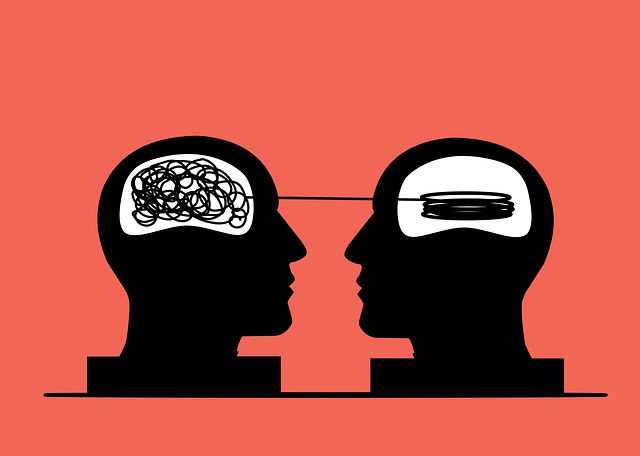Dynamic Interpersonal Therapy (DIT) is an evidence-based approach to mental health psychotherapy that focuses on the impact of social interactions on emotional well-being. By helping clients explore and modify unhealthy interpersonal patterns, therapists foster self-awareness, emotional regulation, and healthier communication strategies. DIT combines reflective listening, personalized coping mechanisms, and problem-solving skills to enhance relationship satisfaction, treat various psychological disorders, and ultimately improve mental health outcomes.
“Dynamic Interpersonal Therapy (DIT) emerges as a potent approach within the realm of mental health psychotherapy. This therapeutic method prioritises the intricate web of relationships as a key factor in fostering mental well-being. Understanding DIT involves exploring its core principles, from interpreting interpersonal dynamics to promoting self-awareness and growth. By delving into its unique techniques, we uncover how DIT enhances traditional therapy, offering a comprehensive path towards improved mental health and more fulfilling relationships.”
Understanding Dynamic Interpersonal Therapy: A Brief Overview

Dynamic Interpersonal Therapy (DIT) is a form of psychotherapy that focuses on understanding and improving the way individuals interact with themselves and others. This therapeutic approach recognizes that our relationships and social interactions significantly influence our mental health and overall well-being. DIT aims to help clients identify and modify unhealthy patterns in their interpersonal relationships, thereby fostering better emotional regulation and enhancing their quality of life.
In this therapy, the therapist facilitates a collaborative exploration of the client’s experiences and behaviors within various contexts, including personal, family, and social settings. By encouraging open communication and self-reflection, DIT enables individuals to gain deeper insights into their emotions, beliefs, and behaviors. This process promotes more adaptive coping strategies, strengthens relationships, and ultimately contributes to improved mental health outcomes.
Key Principles and Concepts in Dynamic Interpersonal Therapy

Dynamic Interpersonal Therapy (DIT) is grounded in the belief that our relationships significantly impact our mental health and well-being. This therapeutic approach focuses on understanding the intricate web of interactions between individuals, aiming to help clients unravel complex emotional issues rooted in early interpersonal experiences. By exploring current relationships and past patterns, DIT facilitates personal growth and positive change.
The key principles emphasize the importance of self-awareness, empathy, and genuine connection. Therapists encourage clients to express their feelings openly while fostering an environment of trust and acceptance. This process involves identifying repetitive patterns in interactions, understanding their origins, and developing healthier coping mechanisms. DIT views mental health psychotherapy as a collaborative journey, empowering individuals to build more fulfilling relationships and lead happier lives.
The Role of Relationships in Mental Health Psychotherapy

Relationships play a pivotal role in mental health psychotherapy, serving as both a tool and a reflection of an individual’s emotional well-being. In dynamic interpersonal therapy, therapists facilitate a deep exploration of relationships, helping clients understand how their interactions with others influence their mental health. By examining these connections, individuals can uncover underlying patterns, resolve conflicts, and develop healthier ways of engaging with the world around them.
The therapeutic space becomes a safe environment where clients can practice new communication skills, foster positive bonds, and gain insights into their emotional responses within relationships. This process empowers them to navigate interpersonal challenges more effectively, leading to improved mental health outcomes. Ultimately, strengthening these connections can enhance overall well-being and foster resilience in various aspects of life.
Techniques and Strategies Employed in Dynamic Interpersonal Therapy

Dynamic Interpersonal Therapy (DIT) employs a range of techniques and strategies designed to help individuals navigate complex interpersonal relationships and improve their overall mental health. Central to this approach is the belief that our interactions with others significantly impact our emotional well-being. Therapists facilitate self-awareness by encouraging clients to explore their feelings, thoughts, and behaviors within relationships. One key method is reflective listening, where therapists mirror and paraphrase a client’s experiences to foster understanding and promote self-reflection.
Another effective strategy involves helping individuals identify and challenge unhelpful patterns in their interactions. This may include exploring defense mechanisms, setting healthy boundaries, and enhancing communication skills. DIT also encourages the development of coping mechanisms and problem-solving strategies tailored to each individual’s unique circumstances. By addressing interpersonal issues at the root of distress, this therapeutic approach empowers clients to build more fulfilling relationships and enhance their mental health psychotherapy journey.
Benefits and Efficacy of Dynamic Interpersonal Therapy

Dynamic Interpersonal Therapy (DIT) offers a unique and effective approach in the realm of mental health psychotherapy. One of its key benefits is its ability to address complex interpersonal issues that often underlie many psychological disorders. By focusing on the dynamic interactions between individuals, DIT helps clients gain deeper insights into their relationships, identify unhealthy patterns, and develop healthier communication styles. This therapeutic process encourages personal growth by fostering self-awareness and enhancing emotional regulation skills.
The efficacy of DIT has been well-documented in various studies, demonstrating its positive impact on a wide range of mental health concerns. Research suggests that this form of psychotherapy can lead to significant improvements in symptoms associated with depression, anxiety disorders, and even trauma. Clients often report increased satisfaction in their relationships and improved overall functioning. The dynamic nature of the therapy allows for personalized treatment plans, ensuring that each client receives tailored support to navigate their unique challenges effectively.
Integrating Dynamic Interpersonal Therapy with Other Treatment Approaches

Dynamic Interpersonal Therapy (DIT) is a versatile approach that can be effectively integrated with various other treatment modalities in the field of mental health psychotherapy. This therapy style encourages individuals to explore and understand their relationships as a key aspect of healing and personal growth. By combining DIT with cognitive-behavioral therapy (CBT), for instance, therapists can help clients identify and challenge unhelpful thought patterns while also examining how these thoughts manifest in interpersonal interactions. Such an integration allows for a comprehensive treatment plan, addressing both cognitive and relational aspects of mental health.
When paired with other evidence-based practices like mindfulness-based therapies, DIT enhances the exploration of present-moment experiences within relationships. This integration can be particularly beneficial for clients dealing with trauma or attachment issues, as it facilitates the development of healthy interpersonal patterns while fostering self-awareness and emotional regulation. The beauty of this approach lies in its adaptability, enabling therapists to tailor treatment to individual needs and preferences, ultimately improving mental health outcomes.
Challenges, Limitations, and Future Directions in Dynamic Interpersonal Therapy

Dynamic Interpersonal Therapy (DIT), while highly effective in many cases, faces several challenges and limitations in the realm of mental health psychotherapy. One significant hurdle is its complexity; DIT demands a high level of skill from therapists, requiring extensive training to master the nuanced interactions and feedback mechanisms at play. This expertise is essential for clients to experience the full benefits of the therapy.
Additionally, cultural sensitivity is paramount in DIT, as interpersonal dynamics are heavily influenced by societal norms and beliefs. Therapists must be vigilant in navigating these differences, ensuring that their interventions are culturally appropriate and inclusive. The future of DIT may lie in integrating technology for wider accessibility and developing specialized approaches to address specific mental health issues, such as interpersonal neurobiology, to enhance its effectiveness.
